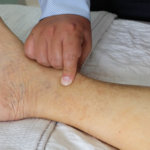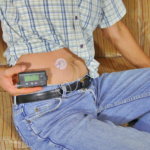
Prader-Willi Syndrome is a rare genetic disorder that happens because of the interruption of specific genes and how they work in affecting the body’s growth and development; while statistics estimate that as much as 1 in 30, 000 of total births every year might be diagnosed with PWS, the statistics aren’t clear on just how much of the population is really born with Prader-Willi syndrome every year, and it might be an even higher statistic if clearer data about the condition’s prevalence were available.
Genetic factors play a considerably huge role in the prevalence of the condition, with as much as 70% of cases resulting from a direct gene defect passed on from the male – while the rest of the cases are accounted for by extra chromosomes from the mother’s side.
Here are 8 symptoms of Prader-Willi Syndrome (or PWS) that you can expect to see from birth to adulthood.
1. Nagging Hunger
A nagging and repetitive feeling of being hungry that seems to have no other, practical cause is one of the first symptoms that doctors will look for when diagnosing a case of PWS. Eating often has little to no effect on the actual hunger itself, and it’s usually back within just a few minutes of having eaten something.
When diagnosing PWS, experts will rule out other causes for hunger first, such as any potential digestive issues.
This symptom usually starts to show itself in early infancy and can manifest in the form of a grumpy infant that isn’t soothed in spite of various attempts at feeding and changing. Combined with some of the other symptoms on this list, all of them can be symptoms or warning signs of PWS.
Hormonal therapy can oftentimes go a long way towards treating the nagging feeling of hunger that’s associated with the condition.



